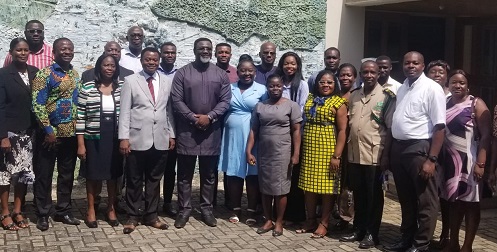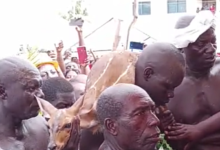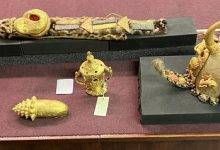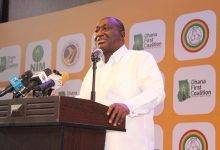
Ghana has obtained $486.2 million as first payment from carbon sale.
This is as a result of a pilot project that was started in 2010 to store carbon in some selected forest reserves in the country as one of the potential ways to mitigate climate change.
Mr Andrew Okrah, Director of the Forestry Commission Training Center, located at Akyawkrom in the Ejisu Municipality of Ashanti, mentioned to the Ghanaian Times at the sideline of the 2022 end of year review and planning session of the Forest Research Institute of Ghana of the Council for Scientific and Industrial Research (CSIR-FORIG).
It was on the theme, “Forestry Research for Sustainable Development”.
Carbon storage, also known as carbon sequestration, is a method of capturing carbon dioxide emissions and storing them in coal seams, aquifers, depleted oil and gas reservoirs and other spaces deep under the surface of the earth.
Theoretically, this would prevent those gases from having an effect on climate.
Ghana with one of the highest deforestation rates in Africa, became the third country to sign a landmark agreement with the World Bank that rewards community efforts to reduce carbon emissions from deforestation and forest degradation.
The sale of the carbon is a mechanism to provide an economic incentive to limit greenhouse gas emissions.
According to the Director, it was time for Ghana to take advantage of carbon trading saying “if on pilot bases such an amount could be obtained, then the sky could be a limit if seriousness was attached to projects for carbon emission reductions from the forest and land use sectors.”
He said the Forestry Commission was working in close partnership with other stakeholders to promote the plantations of climate smart species to reduce carbon emissions in the country.
Earlier, Mr Okrah, in a presentation on Forest and Climate Change, noted that the national total forest reserve now was 6.5 million hectares, and efforts must be made to protect the forests.
He wondered why there was still the talk about illegal mining (galamsey), illegal chainsaw, charcoal productions as some of the most common pressures causing deforestation and severe forest degradation.
The Director charged the CSIR-FORIG to come out with measures to combat the menace for the betterment of the country.
Prof. Daniel A. Ofori, Director, CSIR-FORIG, highlighted plans to link up with small scale carpenters to take advantage of the Institute’s Wood and Furniture Testing Center to ensure products on the market were of quality and international standards.
According to Prof Ofori, the Center had now been accredited for conducting tests under ISO 17025.
Chairs and tables, he said, could be tested for their durability, stability and strength to determine the life span of the products and their ability to perform the functions for which they were designed.
He mentioned that the Institute, under its livelihood impactful project, trained 684 persons in snail farming, mushroom cultivation, bee keeping, tree nursery and briquettes production which would go a long way to reduce the pressure on the forests.
FROM KINGSLEY E.HOPE, KUMASI







